Responsible Transition
We aim to transition to a low carbon economy, balancing environmental and social imperatives with our stakeholders’ expectations.
We are committed to upholding good environmental, social and governance (ESG) practices, which include the promotion of sustainable finance. As part of our mission to humanise financial services, we aim to create a sustainable future for all, through striking a strategic balance between remaining attentive to the implications of our actions on the communities we serve and to the needs of our different stakeholders. Our ultimate ambition is to embed sustainability across all our operations to drive change for a better world for the good of humanity.
Our purpose and value-driven commitment towards responsible banking is underpinned by our key sustainability pillars:

We aim to transition to a low carbon economy, balancing environmental and social imperatives with our stakeholders’ expectations.

We strive to build community resilience across ASEAN and undertake responsive actions to promote economic development and social wellbeing.

We lead by example with good management practices and ensuring that Maybank’s ESG strategy is based upon a strong foundation.
As one of the leading financial institutions in ASEAN, we believe that we have a crucial role in driving and influencing business practices for a better future. Our core ambitions towards a more sustainable group industry include:
We will achieve this for ourselves and our clients through business and operational practices and policies, providing offerings and solutions that deliver impact to our stakeholders.
We will support the communities we operate in through impactful social finance solutions while enabling a balanced and inclusive society by providing opportunities and access to resources.
We pledge to manage our own emissions and achieve this by 2030 through the adoption of leading sustainable practices and supporting our suppliers’ transition towards high ESG standards, while enabling greater inclusion.
We want to further strengthen our foundation in governance, ethics, trust and transparency to reflect the highest commitment to diversity, inclusion, equity, and privacy.

This includes direct lending and investments, services related to arranging, syndicating, fundraising or underwriting as well as advisory, all of which will integrate ESG criteria.

Anchored on our mission of Humanising Financial Services, this involves empowering our communities through initiatives that contribute towards the betterment of lives, upward social mobility and reduced inequalities, and providing greater financial inclusion for the vulnerable communities in alignment with our overall mission and the UN Sustainable Development Goals (SDGs).

This goal is necessary to halt the negative impact of climate change, which is critical in meeting the 1.5°C global warming target under the Paris Agreement. This involves ensuring an overall balance between all direct and indirect CO2e emissions, across our operations and the business activities we finance.

This entails embedding sustainability actions and thinking across our business and operations, within community-based programmes and shaping a sustainability culture among Maybankers.
The Maybank Group Sustainability Framework serves as the overarching document that guides our overall approach towards sustainability and further supported by other core frameworks & policies.
Please refer to the Framework and Governance section for more details.
The Group has identified and established our position in six industries - Palm Oil, Forestry & Logging, Construction & Real Estate, Power, Oil & Gas and Mining & Quarrying. We also have a No Deforestation, No New Peat, No Exploitation (NDPE) stance for the Group which applies to all relevant sectors, including but not limited to palm oil, forestry and logging industries. On deforestation, this includes forest reserves, primary forests and environmentally sensitive areas, whilst for exploitation, this covers forced labour, child labour as well as minimal wage requirements. NDPE is viewed as a fundamental component for sustainable practices, given the adverse impact such activities have on our customers, the community and the environment. As such, the Group will not extend new financing facilities to customers that are not aligned to this stance.

We recognise that food security and safety are crucial elements in addressing our sustainability agenda. An important contributor to this is the palm oil industry which is widely used throughout the global food supply chain. In view of this, we need to ensure that the industry is managed responsibly and this is reflected as part of our NDPE stance of which we will not finance activities where we believe are or could lead to a significantly adverse impact on the environment, surrounding communities and labour. This applies to all business segments within the Group that extend any form of financing to the palm oil supply chain. Over and above this, clients are subject to or at minimum required to have a time-bound commitment to meet requirements such as local or international sustainable palm oil certification, zero burning practices, best practices on existing peat, climate change, biodiversity and Free, Prior and Informed Consent (FPIC), amongst others.

We believe the forestry industry is a necessity for sustainable development - both locally and globally. Besides the provision of livelihoods, well managed forests contribute to the stabilisation of the global climate system, regulate water cycles, provide a natural habitat and supports rural community development. Therefore, we will not finance activities which we believe are or could lead to a significantly adverse impact on the environment, surrounding communities and labour. This applies to all business segments within the Group that extend any form of financing to the forestry and logging value chain. The Group has zero tolerance towards illegal logging and trading of illegal timber and we are guided by a number of national and regional principles through certification and licensing requirements. Furthermore, clients are subject to or at minimum required to have a time-bound commitment to meet requirements such as biodiversity protection as well as FPIC of indigenous people and local communities.
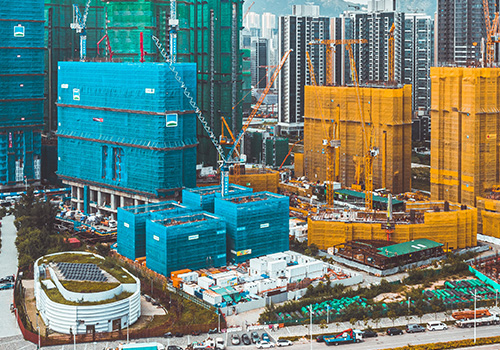
We recognise that construction and real estate are the main drivers for economic growth and is the engine of social sustainability. Therefore, it is crucial that we strike a balance between environmental and social imperatives and economic growth. We will actively engage with our clients to drive the adoption of sustainability practices with low carbon emissions in all project developments that we are in or plan to be involved with. This applies to all business segments within the Group that extend any form of financing to the sector. In addition, we intend to avoid potential ESG risks from transactions or projects associated with poor ESG practices.
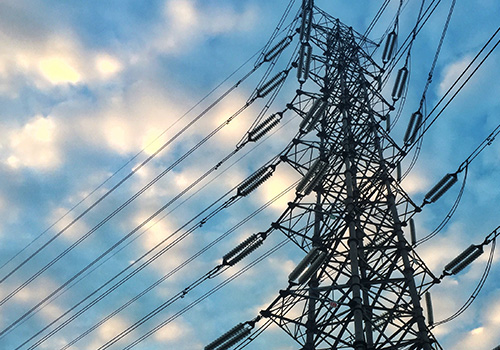
We believe that the power sector is essential for inclusive economic growth and sustainable human development. We hold firm to the principles of working with our clients, other relevant organisations and countries within the region to explore the use of cleaner and more efficient energy as well as to plan and build together, more environmentally friendly energy sources. In this regard, we are committed to not financing new greenfield coal or oil fired power plants and power value chain business activities classified as unacceptable under Maybank’s ESG Risk Classification. This includes corporate lending, project financing as well as advisory services such as arranging, syndicating, fundraising and underwriting. The Group will, however, support clients who are committed to, stop the building of new coal fired power plants where more sustainable alternatives are available, reduce reliance on coal power, transition towards sustainable energy mix, practices or economic activities and aim for carbon neutrality by 2050. We believe this approach provides all relevant parties the opportunity to transition responsibly and positively in the near to medium-term, without impeding the economic progress of developing nations.
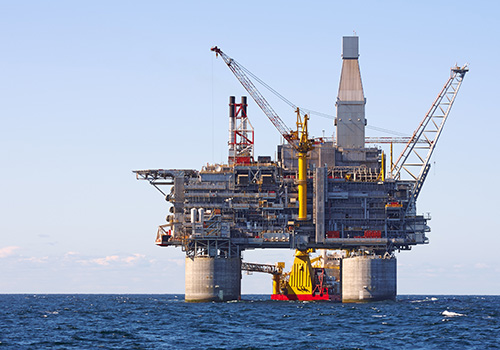
We recognise that the oil & gas industry is a key contributor to the GDP for the Group’s home markets. With Maybank’s geographical footprint being largely in developing economies in ASEAN, any immediate stop to oil and gas financing would have economic and social impacts to the region. In view of this, the Group requires that clients have sustainable business processes or practices in place and are working towards ESG commitments, including plans to improve their existing ESG practices, particularly on, specific areas such as emissions, water management and biodiversity protection. Clients are also strongly encouraged to showcase basic ESG disclosures by 2025. These requirements are applicable to the entire industry’s value chain. We also intend to engage our existing clients to discuss and support their transition plan towards sustainable business practices, with Maybank helping them to progress towards achieving meaningful decarbonisation in line with the goals of the Paris Agreement or net zero carbon emissions by 2050.

The Group’s exposure to coal-fired power plants are primarily in ASEAN and in countries with relatively low electrification rates and where long term electricity security and reliability is important. Therefore, we are cognisant that any immediate stop to coal financing would have severe economic and social impacts to these countries. However, we will not finance coal and coal mining support, radioactive materials, deep sea mining, riverine and shallow marine sites that are not suitable for tailings disposal, mountain top removal and other techniques that are not consistent with principles and standards of international codes. We will also avoid financing new borrowers who are engaged in thermal coal and thermal coal related activities; derive a material amount of their annual revenue from thermal coal; and do not have any existing relationship with Maybank Group. For existing clients, we will not provide new financing for thermal coal mining and its related activities. This includes new general purpose financing which can be fungible. With the recent COP26 commitment to phase down unabated coal, we will also look to ultimately divest from coal-related ventures.

As part of our sustainable financing drive, we are involved in four large-scale solar photovoltaic power plant projects from 2020, with a total financing of approximately RM1.3 billion. These projects provide an opportunity to replace conventional coal or gas-powered plants in the local energy grid and lower carbon emissions.
We also support the SunLease programme through a RM70 million loan to construct a 30MW rooftop photovoltaic system to generate cheaper electricity.
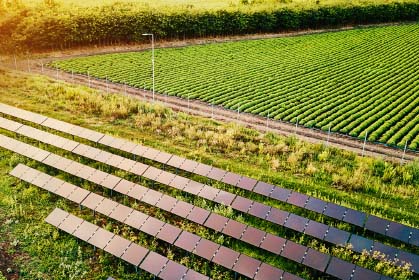
Cypark Ref’s RM550 million SRI Sukuk was an award-winning, landmark green financing deal in Malaysia. We led the deal and brought in an unprecedented Solar Turnkey Financing Structure that enabled Cypark to tap into the debt capital market for the funding of three separate large-scale solar projects. The three solar projects, 90MW in total, are projected to reduce greenhouse gas emissions by approximately 2.4 million tonnes over 21 years.
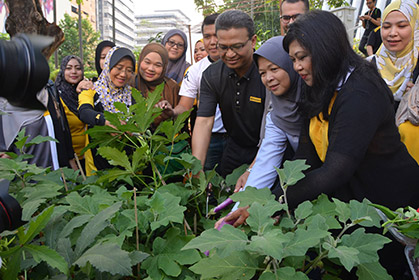
In 2020, we channelled RM374 million into refinancing waste-to-energy projects as an opportunity to advance renewable energy generation in Malaysia. These projects also support waste management efforts by incinerating municipal solid waste to produce steam for electricity generation. They are slated to convert 600 tonnes of waste per day, generating up to 25MW of power, with the potential to expand further in the future.



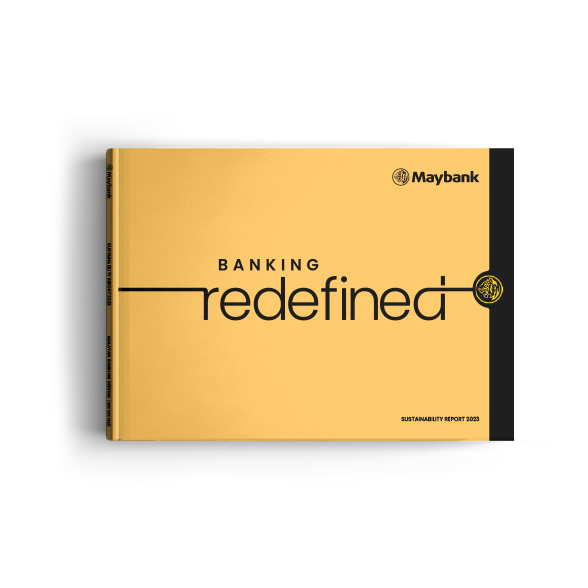
Our Sustainability Report details Maybank’s sustainability strategy, approaches, initiatives and performance in 2023. In demonstrating our leadership in this space, this year’s Sustainability Report is complemented by our first standalone Environmental Report. Download Report Please refer to our Sustainability Performance Data and Assurance Statement for more details.
Looking for a different Sustainability Report? Find them all here.
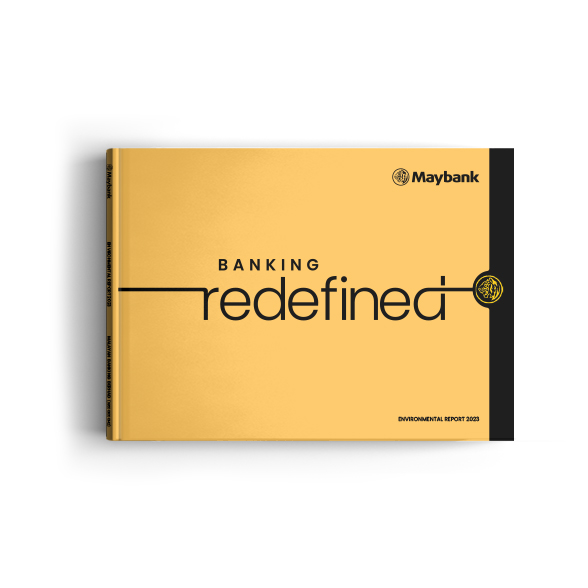
We are proud to present our first standalone Environmental Report, which complements the Sustainability Report 2023, focusing on the outcomes of our environmental related strategy, principles, initiatives including climate-related issues. Download Report

In line with Humanising Financial Services, the Group Human Rights Policy reflects our commitment to place people at the centre of everything we do. The policy will be weaved into all our management systems, ensuring that it is put into action, just as sustainability has been integrated into our operations. Download Policy
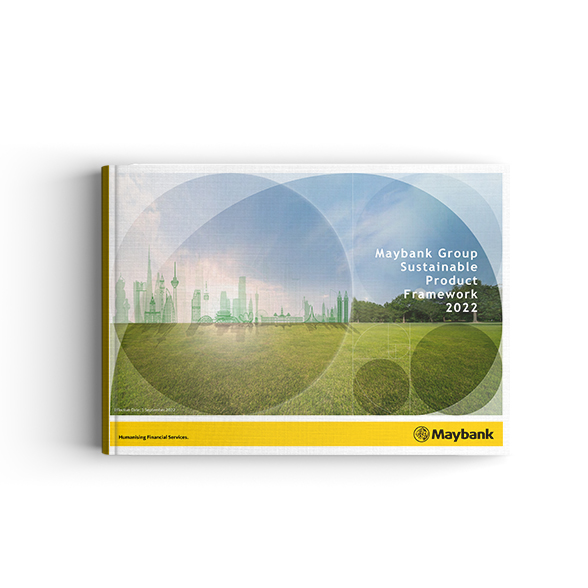
The need for a just transition is more evident than ever. With today’s capital being the key to unlocking tomorrow’s transition, Maybank is well positioned to mobilise capital to where it is needed the most and facilitate a just transition for our clients to shift the region onto a more sustainable development path. Download Framework
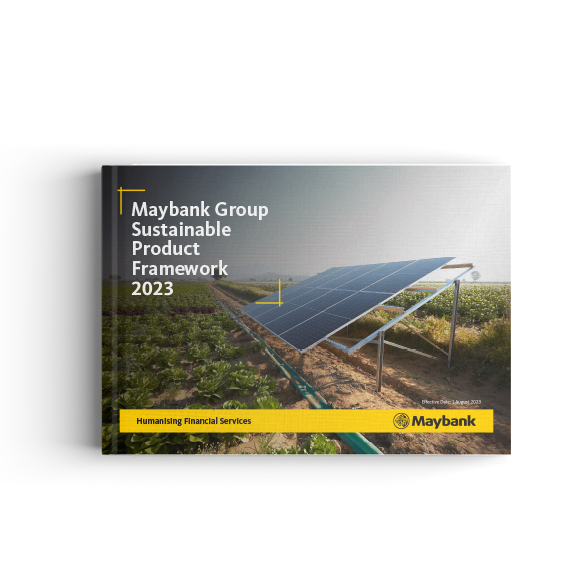
With the rise of multiple taxonomies across geographies and the rapidly evolving sustainability landscape, the updated Sustainable Product Framework is a comprehensive guidance on Maybank’s sustainable finance mobilisation. Facilitating a just transition for clients to develop a more credible sustainable path is the core of what we aspire to do, in pursuit of a Net Zero future. Download Framework

The world is at a precipice of shifting past the tipping point into an irreversible future of climate emergency. Transition finance is a key component to facilitate the transitioning of brown assets in the hard-to-abate sectors. With capital being the key to unlocking a Net Zero Future, Maybank stands eveready to mobilise capital to where it is needed the most: to support a Paris Agreement-aligned global transition. Download Framework